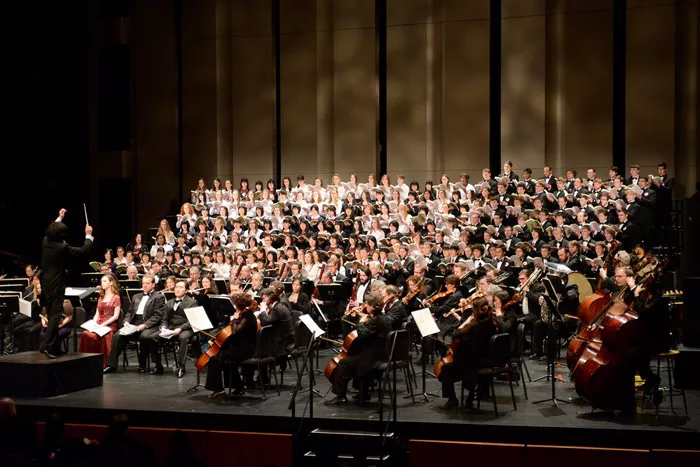In the vast landscape of musical history, certain individuals stand out as titans, their compositions transcending time and captivating audiences across generations. From the grandeur of orchestral symphonies to the intimacy of solo piano pieces, the works of these composers have left an indelible mark on the world of music. In this article, we embark on a journey through the annals of musical history to uncover the top 10 composers of all time.
1. Johann Sebastian Bach (1685-1750)
Regarded as one of the greatest composers of all time, Johann Sebastian Bach’s influence on Western classical music is immeasurable. His mastery of counterpoint, harmonic complexity, and profound expression earned him the title of “The Father of Music.” Bach’s compositions spanned a wide range of forms, from the intricate fugues of “The Well-Tempered Clavier” to the monumental Mass in B Minor. His music continues to inspire and awe audiences centuries after his death.
2. Ludwig van Beethoven (1770-1827)
Beethoven’s revolutionary compositions marked a turning point in the history of music, bridging the Classical and Romantic eras. Deafness did not deter his creative genius; instead, it fueled his determination to push the boundaries of musical expression. From the iconic “Symphony No. 9” to the introspective depths of his late string quartets, Beethoven’s music resonates with profound emotion and human spirit, earning him a place among the greatest composers of all time.
3. Wolfgang Amadeus Mozart (1756-1791)
Mozart’s prodigious talent and prolific output cemented his legacy as one of the most celebrated composers in history. From the youthful exuberance of his early symphonies to the transcendent beauty of his operas, Mozart’s music epitomizes elegance, grace, and technical brilliance. His ability to effortlessly blend melody, harmony, and form has ensured his enduring popularity, captivating audiences with its timeless charm.
4. Pyotr Ilyich Tchaikovsky (1840-1893)
Tchaikovsky’s lush orchestration and emotive melodies have made him a beloved figure in the world of classical music. From the haunting strains of “Swan Lake” to the triumphant finale of his “1812 Overture,” his compositions evoke a wide range of emotions, from joy to sorrow to sheer exhilaration. Tchaikovsky’s music captures the essence of the human experience, transcending cultural boundaries to touch the hearts of listeners around the globe.
5. Johann Strauss II (1825-1899)
Known as the “Waltz King,” Johann Strauss II composed some of the most beloved and enduring dance music of the 19th century. His infectious melodies and spirited rhythms captivated audiences at Vienna’s grand balls and continue to enchant listeners to this day. From the iconic “Blue Danube Waltz” to the exuberant “Tales from the Vienna Woods,” Strauss’s music embodies the elegance and charm of the Viennese waltz tradition.
6. Frédéric Chopin (1810-1849)
Chopin’s exquisite piano compositions epitomize the Romantic era’s emphasis on individual expression and emotional depth. From the delicate lyricism of his nocturnes to the fiery passion of his études and ballades, Chopin’s music explores the full range of human emotion with unparalleled sensitivity and virtuosity. His legacy as one of the greatest composers for the piano endures, inspiring pianists and audiences alike with its profound beauty and intimacy.
7. Johannes Brahms (1833-1897)
Brahms’s symphonic mastery and meticulous craftsmanship earned him a place among the greatest composers of the Romantic era. Inspired by the classical forms of Beethoven and Bach, Brahms created music of profound depth and complexity, blending rich harmonies with stirring melodies. From the monumental “Symphony No. 4” to the tender lyricism of his chamber music, Brahms’s compositions continue to captivate audiences with their timeless beauty and emotional resonance.
8. Franz Schubert (1797-1828)
Despite his tragically short life, Schubert left behind a remarkable legacy of music that continues to inspire and enchant listeners to this day. His gift for melody and profound lyricism is evident in works such as the “Trout Quintet” and the hauntingly beautiful “Ave Maria.” Schubert’s music captures the essence of Romanticism, with its emphasis on emotion, imagination, and the exploration of the human condition.
9. Antonio Vivaldi (1678-1741)
Vivaldi’s virtuosic compositions and innovative use of the concerto form have earned him a place as one of the Baroque era’s most influential figures. His collection of violin concertos, “The Four Seasons,” remains one of the most popular and frequently performed works in the classical repertoire, showcasing Vivaldi’s mastery of form, melody, and color. Vivaldi’s music continues to captivate audiences with its vibrant energy and expressive power.
10. Sergei Rachmaninoff (1873-1943)
Rachmaninoff’s lush harmonies and sweeping melodies have made him one of the most beloved composers of the late Romantic period. From the achingly beautiful melodies of his piano concertos to the haunting strains of his choral music, Rachmaninoff’s compositions exude passion, nostalgia, and profound emotion. His music continues to resonate with audiences around the world, offering solace and inspiration in equal measure.
Conclusion
In conclusion, the top 10 composers of all time have left an indelible mark on the world of music, their compositions enduring through the ages to captivate and inspire generations of listeners. From the timeless beauty of Bach and Mozart to the revolutionary genius of Beethoven and Chopin, their music continues to enrich our lives and remind us of the boundless power of human creativity and expression.

